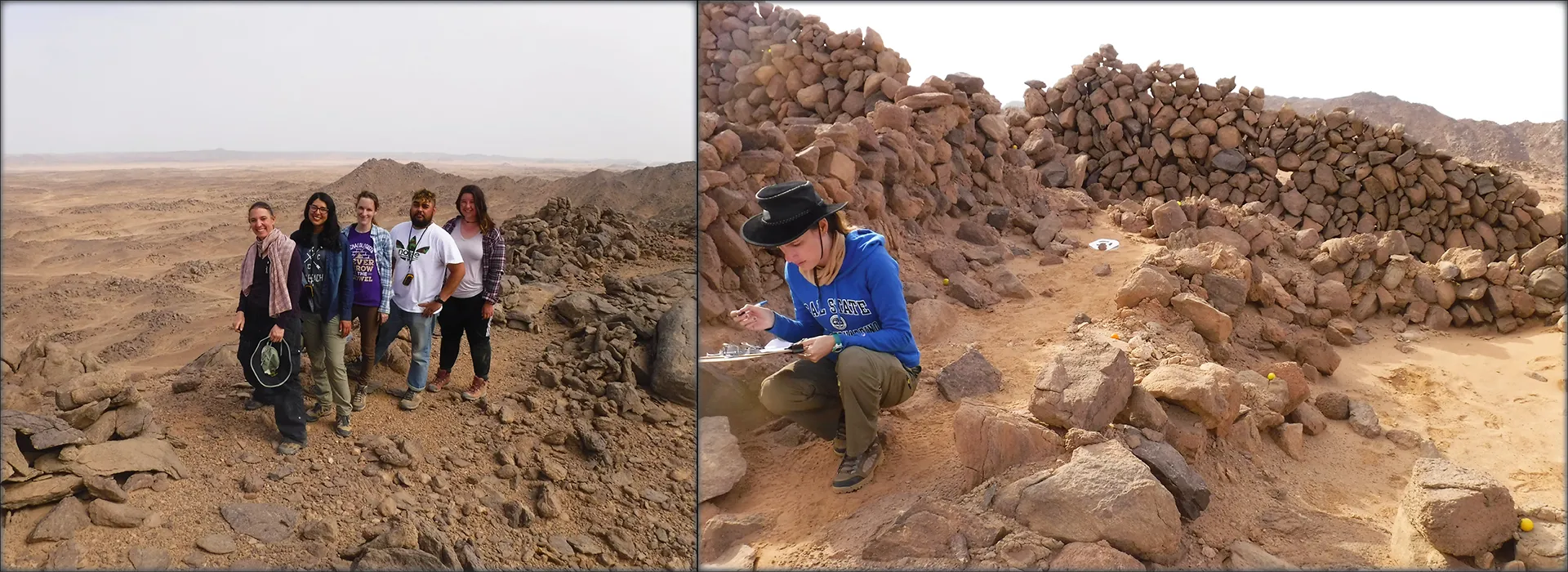Joe Gutierrez Office of Strategic Communication (909) 537-5007 joeg@csusb.edu

The Wadi el-Hudi Expedition in Egypt, directed by Kate Liszka, the Benson and Pamela Harer Fellow at Cal State San Bernardino and assistant professor of history, was awarded the Ellen and Charles Steinmetz Endowment Fund for Archaeology, the Archaeological Institute of America (AIA) has announced.
“Liszka was awarded a grant for the Wadi el-Hudi Expedition that has been surveying and excavating ancient fortified settlements and mines in Egypt’s Eastern Desert since 2014,” the AIA said in announcing the grant award on its website. “The imminent destruction of the archaeology of the area by new gold mines has forced the project to accelerate the pace of their research. Liszka and her team have developed a technique for ground-based photogrammetric survey using multiple cameras mounted on poles to rapidly finish surveying the standing architecture, rock inscriptions, and other archaeological remains in the area.”
“The Steinmetz Grant will make an important contribution to enhancing the work at Wadi el-Hudi,” Liszka said. “It supported our recent work in Egypt, where we took 146,000 photos to make the 3D models, and it will also help to support turning this raw data into a virtual interface so that everyone can explore Wadi el-Hudi from their homes. I also look forward to my students at CSUSB learning from these models.”
The Steinmetz Fund was created to support the use of technology in archaeological research by providing grants to archaeological projects that make innovative use of technological tools and methods, according to the AIA.
The Wadi el-Hudi Expedition was launched in 2014 to record and conserve the monuments at Wadi el-Hudi, located in the Eastern Desert of Egypt. In ancient times, the expedition website says, “it was a center for mining because of its unique geology. It contains dozens of archaeological sites that stand like time capsules in the desert, which date from the Paleolithic Period (about 200,000 years ago) to the Islamic Period (about 1,000 years ago). …
“Prior work there published only half of the surviving inscriptions and did not investigate the greatest part of the archaeology,” the expedition’s website says. “Nevertheless, Wadi el-Hudi has historically significant information for the history of Egypt and the organization of the Ancient Egyptian government. Indeed, far beyond its importance for the study of mining expeditions, Wadi el-Hudi has the potential to change much of what we know about the political and social history of all of Ancient Egypt.”
Visit the Wadi el-Hudi Expedition website at wadielhudi.com to learn more or to make a tax-deductible donation.
Also follow the expedition on Facebook, Instagram and Twitter for the latest updates.